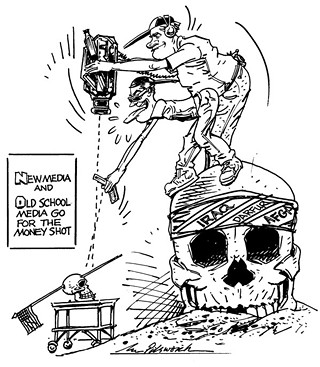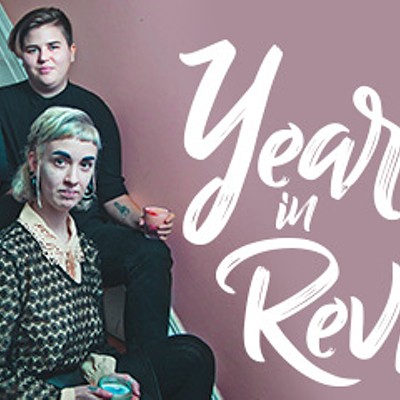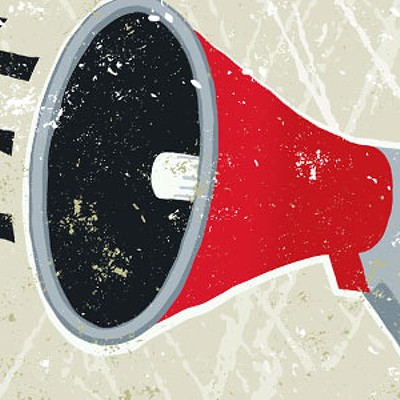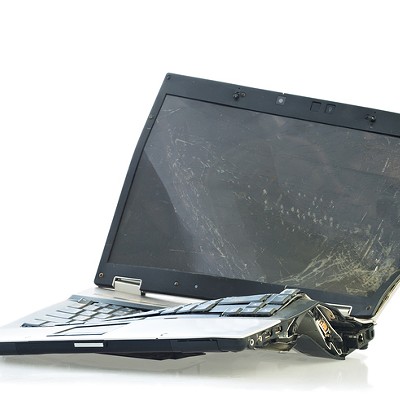The multi-media rampage that followed last week's Virginia Tech massacre reminds me of some sage advice, "pity this busy monster, manunkind, not," the poet
ee cummings counselled. "Progress is a comfortable disease." Cummings, who refused to own a radio or TV, died almost 45 years ago—decades before the technological "progress" bestowed upon manunkind by the internet, email, instant messaging, cellphones, BlackBerrys, YouTube, Facebook and 24-hour cable news channels—all the electronic gimcrackery that millions eagerly rushed to for news of the Virginia shootings. Internet traffic surged as some web-based news sources recorded triple-digit percentage jumps in their online hits. The US and Canadian corporate media frantically competed with each other, buying sponsored links on the search engines Google, Yahoo and MSN in an attempt to direct even more surfer eyeballs to their ad-rich websites. They also fed the voyeuristic frenzy by showing photos of the gunman brandishing his weapons, along with a video in which he delivered an angry, profanity-laden rant. His "multi-media manifesto," as NBC dubbed it, ironically condemned rampant consumerism. "Your Mercedes wasn't enough, you brats," the gunman preached. "Your golden necklaces weren't enough, you snobs...Your vodka and cognac wasn't enough. All your debaucheries weren't enough...to fulfill your hedonistic needs."
The 33 Virginia Tech deaths happened last Monday. Two days earlier, the mainstream media mentioned briefly that almost 300 people had been killed in violence around Iraq. On Wednesday, the media reported that bomb attacks had killed at least 183 people and wounded dozens more in Baghdad. The news from Afghanistan was also grim, with brief media mentions that last year was the deadliest for Afghani civilians since 2001. Human Rights Watch found that insurgents killed 669 civilians in 2006 while at least 230 more died during NATO and coalition operations.
According to professional media standards, however, Iraqi and Afghani deaths are not nearly as newsworthy as the "worst mass shooting in US history." One dramatic event that happens nearby is much easier to tell (and sell) than business-as-usual carnage in far-off, Third World countries. After all, who really cares that the deaths of all those faceless and nameless Iraqis flow directly from the US invasion or that Canadian weapons are killing Afghani civilians? News is a slickly-packaged, highly-perishable product most cheaply manufactured from fresh local ingredients and consumed close to home. The advertisers who sponsor the mainstream news want to reach as many gullible eyeballs and eardrums as possible and so journalists are always under pressure to focus on sensational events and engaging personalities. The sort of news that will attract the shop-till-you-drop crowd in the lucrative US and Canadian "markets." Only five percent of the world's population lives here, but we account for almost a third of the world's consumer spending.
No wonder that last Wednesday, for example, the Halifax Daily News front-page headline blared, "HE KILLED MY MOM." A sub headline read, "Daughter of slain Truro woman says mother would have fought to the end." The headlines accompanied a colour photo of Jocelyne Couture-Nowak, a Virginia Tech victim who once taught French in Truro. ""We Loved Jocelyn'" another headline declared. Inside, the paper carried five more pages of "massacre coverage" plus an editorial. Its only "World News" that day consisted of a short US wire story about a Japanese mayor shot by "an organized-crime chief."
OK, I can just hear Daily News editors responding that their readers can get any world news they want from the web. "Let us stick to the stories we tell best," they might say. But last week's multi-media flood over the Virginia Tech shootings suggests the lives of affluent North Americans are worth a hell of a lot more to the media, their advertisers and their audiences than the lives of those we kill in the rest of the world. Suffering from the "comfortable disease" of technological progress, selling and buying for all he's worth, this busy monster manunkind is losing his humanity.
Feed the disease. Email: [email protected]
















